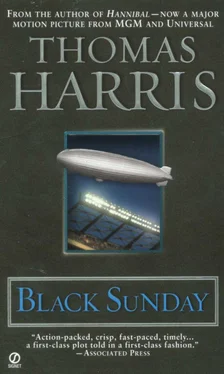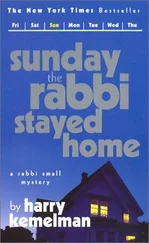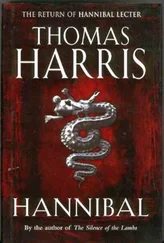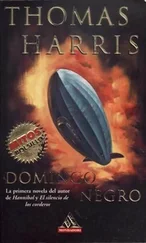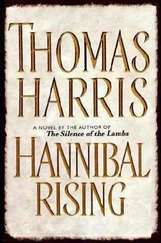“I would have called you when I knew something.” Kabakov’s faint croak carried no apology.
“You would have sent me a postcard from fucking Tel Aviv. ‘Sorry about the crater and the tidal wave.’ ” Corley looked out the window for a full minute. When he turned back to the bed, the anger had gone out of him. He had beaten the anger and he was ready to go again. It was a capacity Kabakov appreciated. “An American,” Corley muttered. “Muzi said an American. Muzi was very clean, by the way. The police yellow sheet listed only one arrest. Assault and battery and disorderly conduct in a French restaurant. Charges dropped.
“We didn’t get much from the house. The bomb was plastic, a little over a pound. We think it was wired into the light-bulb socket inside the refrigerator. Someone unplugged the box, wired it up, dosed the refrigerator door, and plugged it back again. Unusual.”
“I have heard of it once before,” Kabakov said quietly, too quietly.
“I’m having you transferred to Bethesda Naval Hospital first thing tomorrow. We can set up adequate security there.”
“I’m not staying—”
“Oh, yes, you are.” Corley took the late edition of the New York Post from his jacket pocket and held it up. Kabakov’s picture was on page three. It had been shot over the shoulder of an ambulance attendant as Kabakov was carried into the emergency room. The face was smoke-stained but the features were distinct. “They have your name as ‘Kabov,’ no address or occupation. We put the lid on the police community news unit before your identity was cleared up. Washington is climbing my ass. The director thinks the Arabs might recognize this picture and hit you.”
“Splendid. We can take one alive and discuss it with him.”
“Oh, no. Not in this hospital we can’t. The whole wing would have to be evacuated first. Besides, they might succeed. You’re no good to me dead. We don’t want you to be another Yosef Alon.”
Colonel Alon, the Israeli air attaché in Washington, was shot down in his driveway in Chevy Chase, Maryland, by guerrilla assassins in 1973. Kabakov had known and liked Alon, had stood beside Moshe Dayan at Lod Airport when his body was carried off the plane, wind rippling the flag that draped his casket.
“Possibly they would send the same people who killed Colonel Alon,” Moshevsky said with the smile of a crocodile.
Corley shook his head wearily. “They’d send goons and you know it. No. We’re not going to have a hospital shot up. Later, if you want to, you can make a speech on the steps of the UAR mission in a red jumpsuit for all I care. My orders are to keep you alive. The doctor says you must be flat on your back for a week, minimum. In the morning, pack your bedpan. You’re moving to Bethesda. The press will be told you’re transferred to the Brooke Army burn unit in San Antonio.”
Kabakov closed his eyes for several seconds. If he were in Bethesda, he would be in the hands of the bureaucrats. They would have him looking at pictures of suspicious Arab pita bakers for the next six months.
But he had no intention of going to Bethesda. He needed a little medical attention, absolute privacy, and a place to rest for a day or two, with nobody giving orders about his convalescence. And he knew where he might get these things. “Corley, I can make better arrangements for myself. Did they tell you specifically Bethesda?”
“They said it was my responsibility to see that you were safe. You will be safe.” The unspoken threat was there. If Kabakov did not cooperate, the State Department would see to it that he was ordered back to Israel.
“All right, look. By morning I’ll have things set up. You can check it out until you’re satisfied.”
“I’ll promise nothing.”
“But you’ll keep an open mind?” Kabakov hated to wheedle.
“We’ll see. Meanwhile, I’m keeping five men on this floor. It really burns you to lose a round, doesn’t it?”
Kabakov looked at him, and suddenly Corley was reminded of a badger he had trapped in Michigan as a boy. The badger had come at him dragging the trap, the broken end of his femur furrowing the dirt. His eyes had looked like Kabakov’s.
As soon as the FBI agent had left the room, Kabakov tried to sit up, then fell back dizzy with the effort.
“Moshevsky, call Rachel Bauman,” he said.
Bauman, Rachel, M.D., was in the medical listings of the Manhattan telephone directory. Moshevsky dialed the number with his little finger, the only finger that would go in the holes, and got an answering service. Dr. Bauman was away for three days.
He found “Bauman, R.” in the Manhattan residence listings. The same answering service operator replied. Yes, she said, Dr. Bauman might check in, but she wasn’t sure. Did she have a number where Dr. Bauman might be reached? Sorry, but she couldn’t give out that information.
Moshevsky got one of the federal marshals on guard in the corridor to speak to the answering service. They waited while the operator checked his identification and called back.
“Dr. Bauman’s at Mount Murray Lodge in the Pocono Mountains,” the marshal said at last. “She told the answering service she’d call with the room number later. That was yesterday. She hasn’t called yet. If she planned to call back with the room number, she knew she wouldn’t be registering in her own name.”
“Yes, yes,” Kabakov croaked.
“Shacked up, probably.” The man would not be quiet.
Well, Kabakov was thinking, what can you expect when you don’t call somebody for seven years? “How far away is this place?”
About three hours.”
“Moshevsky, go get her.”
Seventy miles from the hospital, in Lakehurst, New Jersey, Michael Lander fiddled with the controls on his television set. It had an excellent picture—all of his appliances worked flawlessly—but he was never satisfied. Dahlia and Fasil gave no sign of their impatience. The six p.m. newscast was well under way before Lander finally left the set alone.
“An explosion in Brooklyn early today took the life of importer Benjamin Muzi. A second man was critically injured,” the newscaster was saying. “Here’s Frank Frizzell with an on-the-scene report.”
The newscaster stared into the camera for an awkward moment before the film rolled. There was Frank Frizzell standing in a tangle of fire hoses on the sidewalk in front of Muzi’s house.
“…blew out the kitchen wall and caused minor damage to the house next door. Thirty-five firemen with six pieces of equipment battled the fire for more than half an hour before bringing it under control. Six firemen were treated for smoke inhalation.”
The scene switched to the side of the house, with its gaping hole. Lander leaned forward eagerly, trying to gauge the force of the blast. Fasil watched as though hypnotized.
The firemen were taking up their hoses. Clearly the TV crew had arrived when the operation was almost completed. Now film from the ramp outside the hospital. Some intelligent television deskman, knowing Long Island College Hospital was the designated receiver for disaster victims in the Seventy-sixth Precinct, must have sent a camera crew directly to the hospital immediately after the alarm. The news team had arrived just before the ambulance. Here was the ambulance crew bringing out the stretcher, two men rolling it and a third holding up a bottle of intravenous fluid. The picture jerked as the cameraman was jostled by the crowd. Picture bouncing now as the cameraman trotted along with the stretcher. A pause as they reached the emergency room ramp. A close-up of the smoke-stained face. “David Kabov, no address, remained in Long Island College Hospital, his condition described as very critical.”
“Kabakov!” Fasil shouted. His lip was drawn back from his teeth and he lapsed into Arabic in a string of filthy oaths. Now Dahlia was speaking Arabic, too. She was pale, remembering the room in Beirut, the black muzzle of the machine gun swinging toward her, Najeer slack against the splattered wall.
Читать дальше
